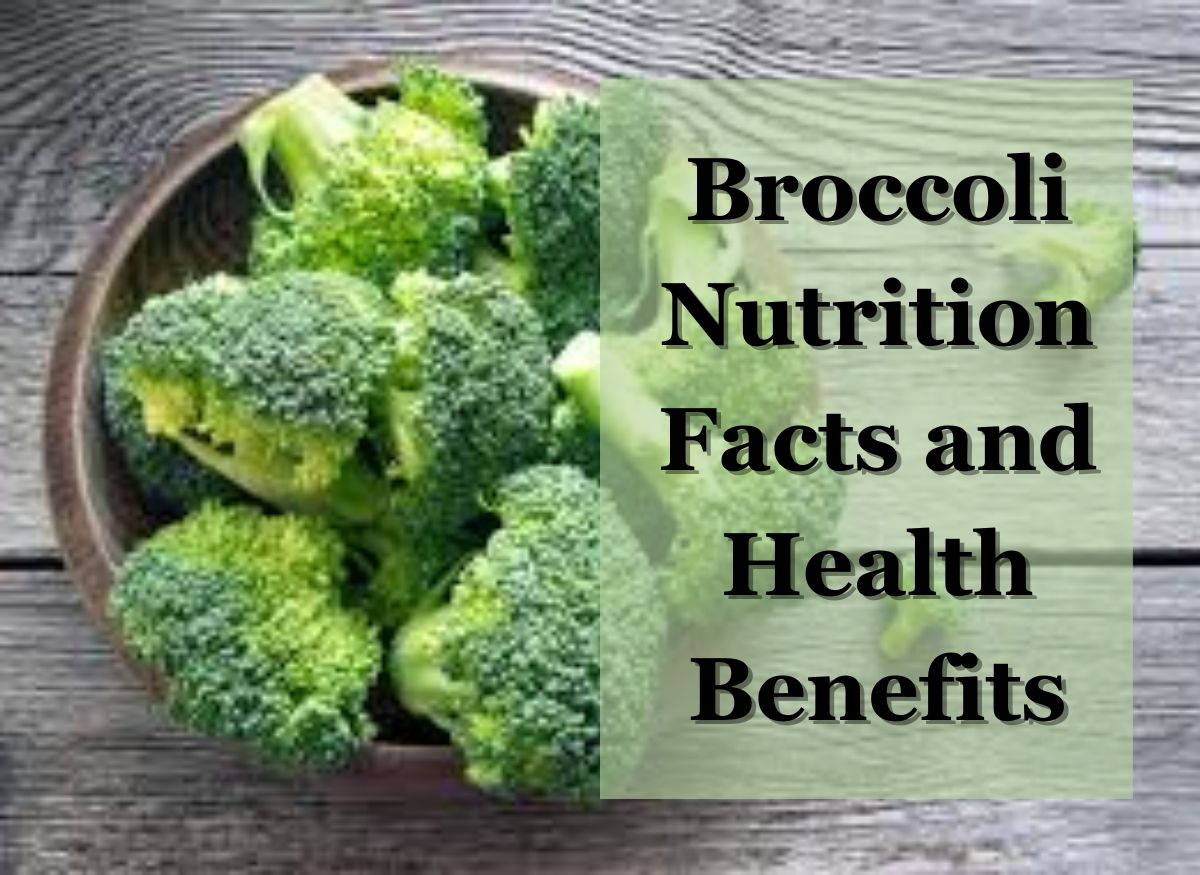
Broccoli Nutrition Facts and Health Benefits
Raw broccoli contains about 90% water, 7% carbohydrates, 3% protein, and very little fat. Most people are eagerly searching to know about Broccoli Nutrition Facts and Health Benefits. In this article you get detailed information about Broccoli Nutrition Facts and Health Benefits.
Broccoli Nutrition Facts and Health Benefits
Here is the nutritional information for 1 cup (90 g) of raw broccoli:
- Calories: 35
- Protein: 2.3g
- Carbohydrates: 5.6g
- Dietary fiber: 2.2g
- Fat: 0.3g
- Vitamin C: 91% of the daily value (DV)
- Vitamin K: 77% of the DV
- Folate: 15% of the DV
One serving also contains small amounts of potassium, magnesium, iron, and calcium.
Carbohydrates
Broccoli’s carbohydrates consist mainly of fiber and sugars. However, the total carbohydrate content is very low, with only 3.4 grams of digestible carbohydrates (total carbohydrate minus fiber) per cup (90 g) (4).
Fiber
Fiber is the main role of a healthy diet. It encourages belly health, brings down the possibility of various diseases, and also helps you to lose weight.
Vitamins and Minerals
Vitamin C: This micronutrient also functions as an antioxidant and is important for immune function and skin health.
Vitamin K1: Broccoli contains high amounts of vitamin K1, which is important for blood clotting and promotes bone health.
Folate (Vitamin B9): Folate is necessary for normal tissue growth and cell function, so it is especially important for pregnant women.
Potassium: Not only is potassium an essential mineral, it also helps control blood pressure and prevent heart disease.
Manganese: This trace element is found in large amounts in whole grain products, legumes, fruits, and vegetables.
Iron: This mineral has many important functions in the body, including carrying oxygen to red blood cells. Broccoli also contains many other vitamins and minerals, although in smaller amounts. Other Plant Substances Broccoli is rich in a variety of antioxidants and plant compounds that contribute to its health benefits.
Sulforaphane: Sulforaphane is one of the most abundant and well-studied plant compounds found in broccoli and may protect against various types of cancer.
Carotenoids: Broccoli contains lutein, zeaxanthin, and beta-carotene, all of which may contribute to improved eye health.
Kaempferol: An antioxidant with many health benefits.
Quercetin: This antioxidant has many benefits, including lowering blood pressure in people with high blood pressure.
Health Benefits of Broccoli
These bioactive compounds have numerous health benefits.
Cancer Prevention
Cancer is characterized by the rapid proliferation of abnormal cells and is often associated with oxidative stress. Broccoli is rich in compounds that are thought to protect against cancer.
A unique group of plant compounds called isothiocyanates distinguish cruciferous vegetables from other vegetables.
Research suggests that isothiocyanates reduce oxidative stress, reduce inflammation, and fight the development and growth of cancer.
Sulforaphane, the main isothiocyanate found in broccoli, blocks the formation of cancer at a molecular level by reducing oxidative stress.
According to some older studies, young broccoli sprouts contain 10 to 100 times more sulforaphane than adult ears of the vegetable. Broccoli supplements are available, but they may not contain the same amount of isothiocyanates and therefore may not provide the same health benefits as eating whole, fresh broccoli.
Lowering Cholesterol Levels
Cholesterol is the main purpose in the body.
For example, it is a key component in the formation of bile acids, which help digest fats. Bile acids are made in the liver, stored in the gallbladder, and released into the digestive system when you eat fat. Some older studies have shown that substances in broccoli bind to bile acids in the intestine, increasing their excretion and preventing them from being reused. This allows new bile acids to be synthesized from cholesterol, lowering the overall levels of this marker in the body. It helps to lower the possibility of heart disease. According to a 2008 study, steamed broccoli may be more effective at binding bile acids, which could theoretically lead to lower cholesterol levels; however, human studies are still needed.
Eye Health
Two major carotenoids found in broccoli, lutein, and zeaxanthin, have been linked to a lower risk of age-related macular degeneration, an eye disease that can affect vision.
Additionally, vitamin A deficiency can cause night blindness, but improving vitamin A status can reverse night blindness. Broccoli contains beta-carotene, which is converted into vitamin A in the body. Therefore, this vegetable can improve eyesight in people with low vitamin A intake. However, it should be noted that the vitamin A provided by broccoli is less than 1% of your daily vitamin A requirement. Therefore, it should be enjoyed together with other vitamin A-rich foods to prevent deficiency.




